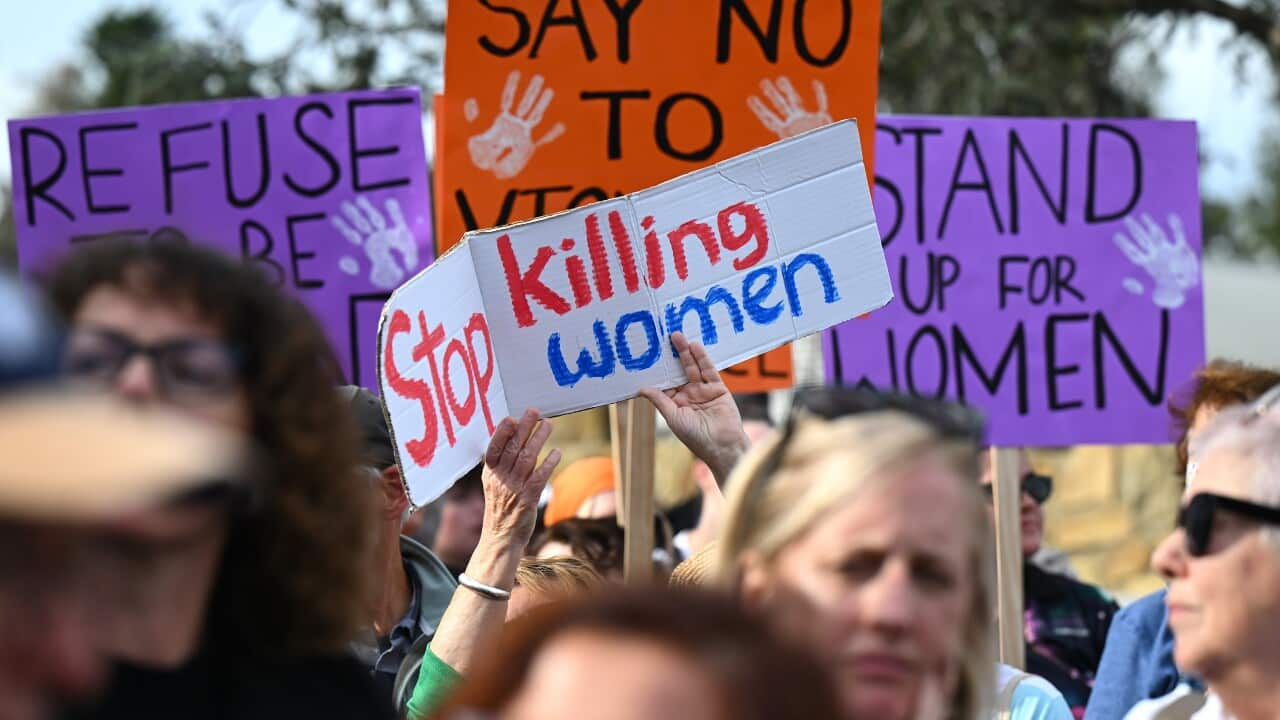This article contains references to domestic violence.
This year, at least 42 women have allegedly been killed in violent attacks by men across Australia, according to Our Watch, a leading national organisation in the prevention of violence against women.
Despite this, experts say the rates of violence against women have dropped significantly in the last 30 years, but warn there is still much to be done before the problem is addressed.
According to new data released by , the rate of women killed at the hands of violent men has declined by 66 per cent over the past three decades.
The new report card also found a decline in the harmful attitudes driving violence, with a 13% decline in young men supporting harmful ideas of masculinity in the past 5 years.
Our Watch CEO Patty Kinnersly said the report card shows progress.
She acknowledged that "in a year where 42 women have allegedly been killed by men's violence", it was "difficult to reconcile that we are making progress in ending this national crisis".

Our Watch CEO Patty Kinnersly says when looking at the longer-term picture, there have been "significant reductions" in the number of women killed by men's violence. Source: AAP / Lukas Coch
"These are positive changes, but zero is the only acceptable number of gender-based homicides and there is still significant work to do if we want to see violence against women rapidly decline."
In a year where 42 women have been killed by men's violence, it's difficult to reconcile that we are making progress in ending this national crisis.Patty Kinnersly
What has changed?
The report card found that women are reporting experiences of violence more and more, signalling a shifting attitude towards reporting and victim-survivors feeling safe enough to do so.
"It's also promising to see improvements in community understanding of violence against women is leading to more women feeling they can report these crimes to police.
"We expect that police reporting of gendered violence will continue to rise as more women feel supported and believed when they come forward," Kinnersly said.

Prime Minister Anthony Albanese described family violence as a national crisis earlier this year. Source: AAP / Lukas Coch
This latest report shows that despite the fact some structural and policy changes have been made to prevent violence against women, much of the change is still in its infancy and will require more work and funding.
The federal government recently announced a funding boost for both public and non-government schools to improve education on consent and respectful relationships.
"For example, New South Wales has only this year released a funded primary prevention strategy and Victoria is still the only state providing whole-of-school respectful relationships education," Kinnersly says.
"This is much more than just changing attitudes — it is about building a more equal society, and we have more work to do to create the structural, legislative and policy change required to end this crisis."
If you or someone you know is impacted by family and domestic violence, call 1800RESPECT on 1800 737 732, text 0458 737 732, or visit . In an emergency, call 000.



